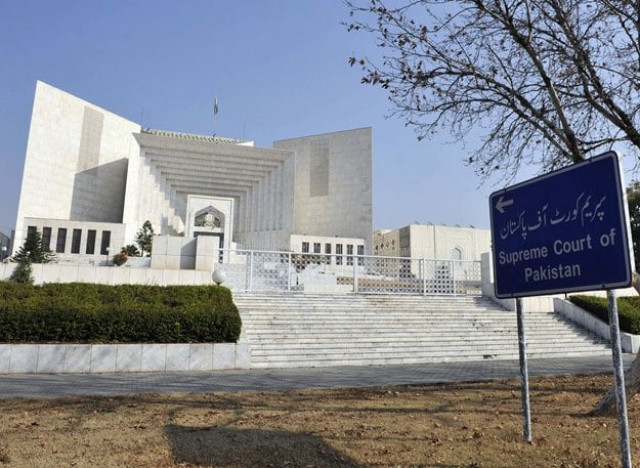Signal-free corridor: ‘Provinces can specify local govt powers’
LDA’s counsel says court cannot specify the type of local government or decide what powers should be delegated to it

PHOTO: AFP
The three judge bench, headed by Justice Mian Saqib Nisar, was hearing the Lahore Development Authority (LDA)’s appeal against the Lahore High Court’s judgement that had stayed construction of a seven-kilometre signal-free corridor from Qurtaba Chowk on the Jail Road to Liberty Roundabout on Gulberg’s Main Boulevard. The court had directed the authority to refrain from starting new development projects until there was an elected local government in the city.
On Monday, the bench sought the Attorney General’s response on the provincial government’s statement, in particular his interpretation of Article 140-A of the constitution, and adjourned the hearing for a day.
In the statement submitted on behalf of the LDA, Advocate Khawaja Haris stated that Article 140-A had left it to the discretion of the provinces to decide what kind of local government system they wanted to establish.
He said that under the article a court of law could direct a province to enact laws for the establishment of an elected local government system as well as for devolution of financial, political and administration authority to them. However, he added that the article had not allowed the court to specify either the kind of local government system or the extent of devolution of powers to local governments.
He said the article had reserved the power exclusively for the province. “The article mandates devolution of political, administrative and financial responsibility and authority to elected representatives of the local governments. It does not prescribe the extent, scope and [sic] ambit and contours of such devolution. It is evident that that mandate has been left to the provinces,” the statement read.
It further said that there were various models of local government around the world and that there was no universal formula for determining the extent of devolution of powers. It said exercise of sovereignty by local governments was not absolute, adding that the main function of the governments was service delivery.
The statement dismissed the suggestion made in the LHC judgement that the Environment Protection Agency had stepped beyond its authority as a regulator in approving the environment impact assessment (EIA) report of the project.
It said that the court’s observation was based apparently on the assumption that because the EPA director general was appointed by the chief minister his judgement in approving the EIA could not be trusted as impartial.
The statement added that the mode of approval of the EIA was entirely in consonance with the law.
Published in The Express Tribune, June 23rd, 2015.



















COMMENTS
Comments are moderated and generally will be posted if they are on-topic and not abusive.
For more information, please see our Comments FAQ